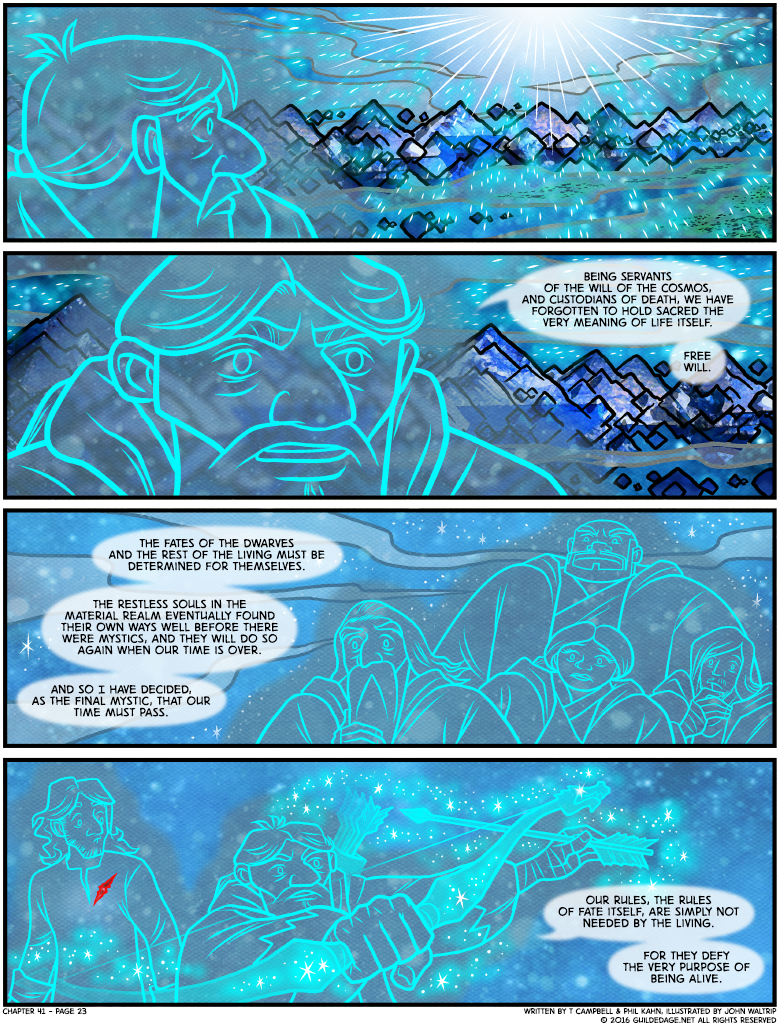Annotated 41-23
The mystics’ reactions to this apostasy vary on this page and the last. Only Cliff is the voice of furious condemnation. Snowpeak and Stonecutter, though, are somewhat receptive. Ember is more concerned for Gravedust than anything else, concerned that sentiment is leading him to make a rash decision.
She is, perhaps, half right. In later chapters, Gravedust will be far less condemning of mysticism than he seems to be here. He will wonder whether it will have a new day, and eventually be pleased to see that it will.
But this is his own departure from the mystic’s path. And with the machinery of the afterlife restored and Gravedust now deaf to them, the other four mystics really have nothing to keep them around on this side of Skryber Pass. Mystics’ time may not be truly over, but theirs is.











Not that I disagree with Gravedust’s decision here but I’m not sure where he takes his argument from:
“Our rules, the rules of fate itself, are simply not needed by the living. For they defy the very purpose of being alive”
… why does he says that? It sounds like accusing the mystics of being some sort of cosmic villains. As if their actions somehow lessened the lifes on Arkerra, or someting. I’m sure that’s not how he means it, but … *what* is he trying to say there, and why?
I believe the argument here is that the Mystics are very tied to fate as a preordained thing that cannot be changed. If this was true, freewill and the idea that one can make their own choices about their fate would be completely false, implying every “choice” a living person made was foretold and only had the illusion of choice.